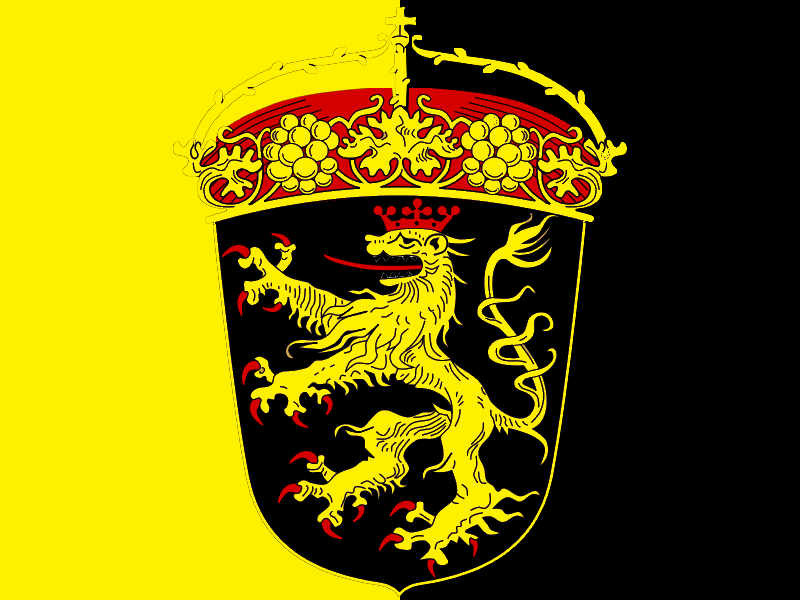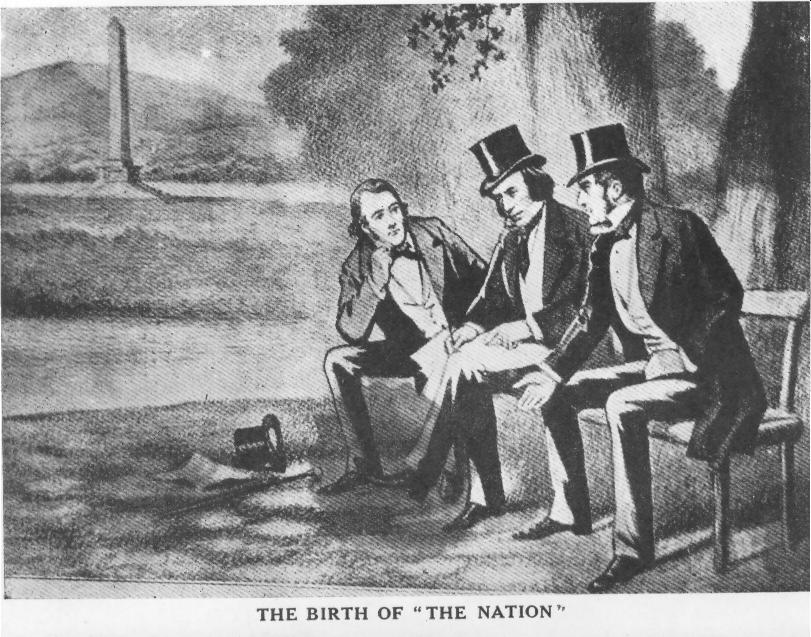|
Hugh Heinrick
Hugh Heinrick (also known as Hugh Henrick) (1831–1877) was a journalist and teacher and a campaigner for Home Rule in Ireland. He was born in Caim near Enniscorthy in County Wexford, Ireland and his surname suggests that he may have been a member of the German Palatine community that settled in the area in the early 18th century. Some time in the mid-19th century, Heinrick moved to mainland Britain, first to Kirkcudbrightshire in Scotland and then to the Aston district of Birmingham, where he settled and worked as a schoolmaster. He was very much involved in the Irish Home Rule movement in the late 19th century, being Secretary to the Irish Home Rule MPs during the General Election of 1874 in which the Home Rule League won 59 seats. He was a frequent speaker at public meetings about Irish Home Rule and wrote a number of newspaper articles on the subject. In 1871, he was Editor of the 'Irish Vindicator', the first newspaper for Irish migrants in London, although it was not a succe ... [...More Info...] [...Related Items...] OR: [Wikipedia] [Google] [Baidu] |
German Palatines
Palatines (german: Pfälzer), also known as the Palatine Dutch, are the people and princes of Palatinates ( Holy Roman principalities) of the Holy Roman Empire. The Palatine diaspora includes the Pennsylvania Dutch and New York Dutch. In 1709, England found itself hosting thousands of Palatines and other Germans who were fleeing famine, war and religious persecution in their native lands. Many of the first arrivals came from the Rhenish and Bavarian Palatinates, and the refugees became collectively known as the "Poor Palatines". They had been displaced by French invasions and famine during the Nine Years' War and the War of the Spanish Succession. After arriving in London, many were resettled in Ireland and British America. Towards the end of the 17th century and into the 18th, the wealthy region was repeatedly invaded by French troops during two wars. At that time the region had not yet fully recovered from the Thirty Years' War. They imposed a scorched-earth policy and ... [...More Info...] [...Related Items...] OR: [Wikipedia] [Google] [Baidu] |
Irish Home Rule Movement
The Irish Home Rule movement was a movement that campaigned for self-government (or "home rule") for Ireland within the United Kingdom of Great Britain and Ireland. It was the dominant political movement of Irish nationalism from 1870 to the end of World War I. Isaac Butt founded the Home Government Association in 1870. This was succeeded in 1873 by the Home Rule League, and in 1882 by the Irish Parliamentary Party. These organisations campaigned for home rule in the British House of Commons. Under the leadership of Charles Stewart Parnell, the movement came close to success when the Liberal government of William Ewart Gladstone introduced the First Home Rule Bill in 1886, but the bill was defeated in the House of Commons after a split in the Liberal Party. After Parnell's death, Gladstone introduced the Second Home Rule Bill in 1893; it passed the Commons but was defeated in the House of Lords. After the removal of the Lords' veto in 1911, the Third Home Rule Bill was introd ... [...More Info...] [...Related Items...] OR: [Wikipedia] [Google] [Baidu] |
1874 United Kingdom General Election
The 1874 United Kingdom general election saw the incumbent Liberals, led by William Gladstone, lose decisively, even though it won a majority of the votes cast. Benjamin Disraeli's Conservatives won the majority of seats in the House of Commons, largely because they won a number of uncontested seats. It was the first Conservative victory in a general election since 1841. Gladstone's decision to call an election surprised his colleagues, for they were aware of large sectors of discontent in their coalition. For example, the nonconformists were upset with education policies; many working-class people disliked the new trade union laws and the restrictions on drinking. The Conservatives were making gains in the middle-class, Gladstone wanted to abolish the income tax, but failed to carry his own cabinet. The result was a disaster for the Liberals, who went from 387 MPs to only 242. Conservatives jumped from 271 to 350. For the first time, the Irish nationalists were elected. Glad ... [...More Info...] [...Related Items...] OR: [Wikipedia] [Google] [Baidu] |
Home Rule League
The Home Rule League (1873–1882), sometimes called the Home Rule Party, was an Irish political party which campaigned for home rule for Ireland within the United Kingdom of Great Britain and Ireland, until it was replaced by the Irish Parliamentary Party. The Home Rule Confederation of Great Britain was a sister organisation in Great Britain. Origins The Home Rule League grew out of the Home Government Association, a pressure group formed in 1870 and led by Isaac Butt, a Dublin based barrister who had once been a leading Irish Tory before becoming a convert to Irish nationalism. On 18–21 November 1873, the loose association re-constituted itself as a full political party, the Home Rule League, and in the 1874 general election, many of whom were from an Irish aristocratic or gentry Church of Ireland background, some newly dedicated former Irish Liberal Party members, such as Sir John Gray MP, and other more radical members who gathered around Cavan MP Joseph Biggar and ... [...More Info...] [...Related Items...] OR: [Wikipedia] [Google] [Baidu] |
The Nation (Irish Newspaper)
''The Nation'' was an Irish nationalist weekly newspaper, published in the 19th century. ''The Nation'' was printed first at 12 Trinity Street, Dublin from 15 October 1842 until 6 January 1844. The paper was afterwards published at 4 D'Olier Street from 13 July 1844, to 28 July 1848, when the issue for the following day was seized and the paper suppressed. It was published again in Middle Abbey Street on its revival in September 1849. Background The founders of ''The Nation'' were three young men – two Catholics and one Protestant – who, according to the historian of the newspaper T. F. O'Sullivan, were all "free from the slightest taint of bigotry, and were anxious to unite all creeds and classes for the country's welfare.".Young Ireland, T. F. O'Sullivan, The Kerryman Ltd. 1945 pg 6 They were Charles Gavan Duffy, its first editor; Thomas Davis, and John Blake Dillon. All three were members of Daniel O'Connell's Repeal Association, which sought repeal of the 1800 Act ... [...More Info...] [...Related Items...] OR: [Wikipedia] [Google] [Baidu] |
Isaac Butt
Isaac Butt (6 September 1813 – 5 May 1879) was an Irish barrister, editor, politician, Member of Parliament in the House of Commons of the United Kingdom, economist and the founder and first leader of a number of Irish nationalist parties and organisations. He was a leader in the Irish Metropolitan Conservative Society in 1836, the Home Government Association in 1870, and the Home Rule League in 1873. Colin W. Reid argues that Home Rule was the mechanism Butt proposed to bind Ireland to Great Britain. It would end the ambiguities of the Act of Union of 1800. He portrayed a federalised United Kingdom, which would have weakened Irish exceptionalism within a broader British context. Butt was representative of a constructive national unionism. As an economist, he made significant contributions regarding the potential resource mobilisation and distribution aspects of protection, and analysed deficiencies in the Irish economy such as sparse employment, low productivity, and ... [...More Info...] [...Related Items...] OR: [Wikipedia] [Google] [Baidu] |
19th-century Irish Writers
The 19th (nineteenth) century began on 1 January 1801 ( MDCCCI), and ended on 31 December 1900 ( MCM). The 19th century was the ninth century of the 2nd millennium. The 19th century was characterized by vast social upheaval. Slavery was abolished in much of Europe and the Americas. The First Industrial Revolution, though it began in the late 18th century, expanding beyond its British homeland for the first time during this century, particularly remaking the economies and societies of the Low Countries, the Rhineland, Northern Italy, and the Northeastern United States. A few decades later, the Second Industrial Revolution led to ever more massive urbanization and much higher levels of productivity, profit, and prosperity, a pattern that continued into the 20th century. The Islamic gunpowder empires fell into decline and European imperialism brought much of South Asia, Southeast Asia, and almost all of Africa under colonial rule. It was also marked by the collapse of the large S ... [...More Info...] [...Related Items...] OR: [Wikipedia] [Google] [Baidu] |
Irish Nationalists
Irish nationalism is a nationalist political movement which, in its broadest sense, asserts that the people of Ireland should govern Ireland as a sovereign state. Since the mid-19th century, Irish nationalism has largely taken the form of cultural nationalism based on the principles of national self-determination and popular sovereignty.Sa'adah 2003, 17–20.Smith 1999, 30. Irish nationalists during the 18th, 19th, and 20th centuries such as the United Irishmen in the 1790s, Young Irelanders in the 1840s, the Fenian Brotherhood during the 1880s, Fianna Fáil in the 1920s, and Sinn Féin styled themselves in various ways after French left-wing radicalism and republicanism. Irish nationalism celebrates the culture of Ireland, especially the Irish language, literature, music, and sports. It grew more potent during the period in which all of Ireland was part of the United Kingdom, which led to most of the island gaining independence from the UK in 1922. Irish nationalists believ ... [...More Info...] [...Related Items...] OR: [Wikipedia] [Google] [Baidu] |
1831 Births
Events January–March * January 1 – William Lloyd Garrison begins publishing '' The Liberator'', an anti-slavery newspaper, in Boston, Massachusetts. * January 10 – Japanese department store, Takashimaya in Kyoto established. * February–March – Revolts in Modena, Parma and the Papal States are put down by Austrian troops. * February 2 – Pope Gregory XVI succeeds Pope Pius VIII, as the 254th pope. * February 5 – Dutch naval lieutenant Jan van Speyk blows up his own gunboat in Antwerp rather than strike his colours on the demand of supporters of the Belgian Revolution. * February 7 – The Belgian Constitution of 1831 is approved by the National Congress. *February 8 - Aimé Bonpland leaves Paraguay. * February 14 – Battle of Debre Abbay: Ras Marye of Yejju marches into Tigray, and defeats and kills the warlord Sabagadis. * February 25 – Battle of Olszynka Grochowska (Grochów): Polish rebel forces divide a Ru ... [...More Info...] [...Related Items...] OR: [Wikipedia] [Google] [Baidu] |





